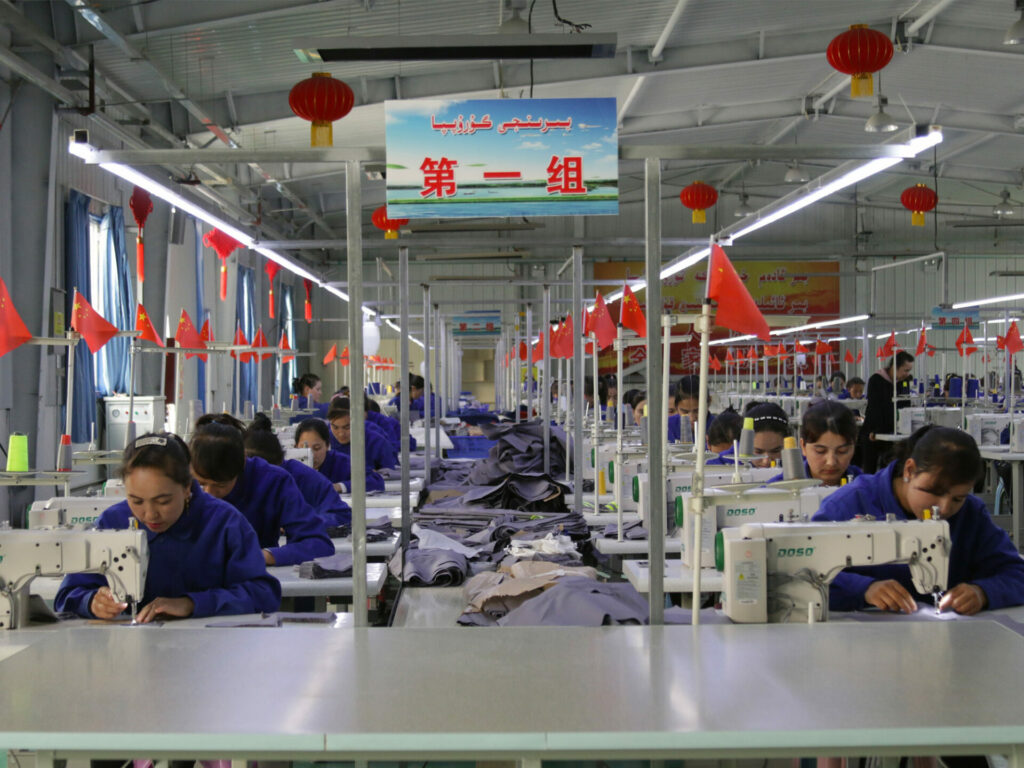Everyday goods used in Europe, from components in smartphones, to the cotton used for clothing, may contain materials manufactured with slave labour. According to experts, it is now more than likely that the average European regularly uses goods containing materials made from slave labour.
Forced labour is defined by the International Labour Organisation (ILO) as “all work or service which is exacted from any person under the threat of a penalty and for which the person has not offered himself or herself voluntarily.”
In a modern context, this can take many forms, from indentured servitude, child slavery, human trafficking, domestic servitude, and other forms of involuntary working conditions. The problem is a global issue. As of 2016, there were believed to be around 40.3 million subject to forced labour across the globe.
Forced labour is still rampant in Europe, where undocumented migrants are forced to work in the EU’s agricultural sector. Around 100,000 people are also working in forced conditions in the UK, mostly as a result of punitive immigration laws.
Most troubling is the export of slave-produced goods in China, where authorities are systematically persecuting the country's Muslim Uyghur minority, in what the United Nations now states may constitute “crimes against humanity.”
Members of China’s Muslim community are regularly rounded up under false charges of extremism and sent to camps, where they are subjected to a social “re-education” and forced to produce goods for companies and local authorities.
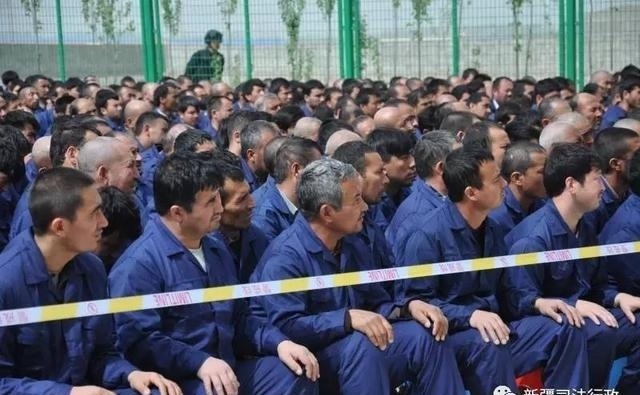
Credit: Xinjiang Judicial Administration
According to data from the Coalition to end Forced Labour in the Uyghur Region, one in five cotton garments in the global apparel market now contain materials tainted by forced labour from the Uyghur region of China.
There is also evidence that the West’s growing need for electric components needed for the transition away from fossil-energy. 45% of the world’s solar-grade polysilicon, used in the production of solar panels, comes from the Uyghur Region, where the use of Muslim slave-labour is rife.
Slavery deeply routed in modern commerce
Chloe Cranston, Business and Human Rights Manager at Anti-Slavery International and member of the Coalition to end Forced Labour in the Uyghur Region says that the use of slave labour is now widespread, and risk becoming critical.
“The unfortunate situation is that a huge amount of products and service we use every day could be made with modern slavery at some point,” Chloe told The Brussels Times. In total, over 17 global industries from agriculture to toys, are implicated in Uyghur forced labour.
Due to the complex nature of international logistical supply chains, it can be extremely difficult to track exactly where components originate from and how suppliers are sourcing materials. Within China, regional suppliers often lack transparency about where they source their products, increasing the risk that goods made from slave labour end up within the European Union.
“It really can be at various layers of the supply chain. Unfortunately, it’s in a huge amount of what we use daily and the reason for that is the way that global supply chains have been built– to put profit before people,” the slavery expert noted.
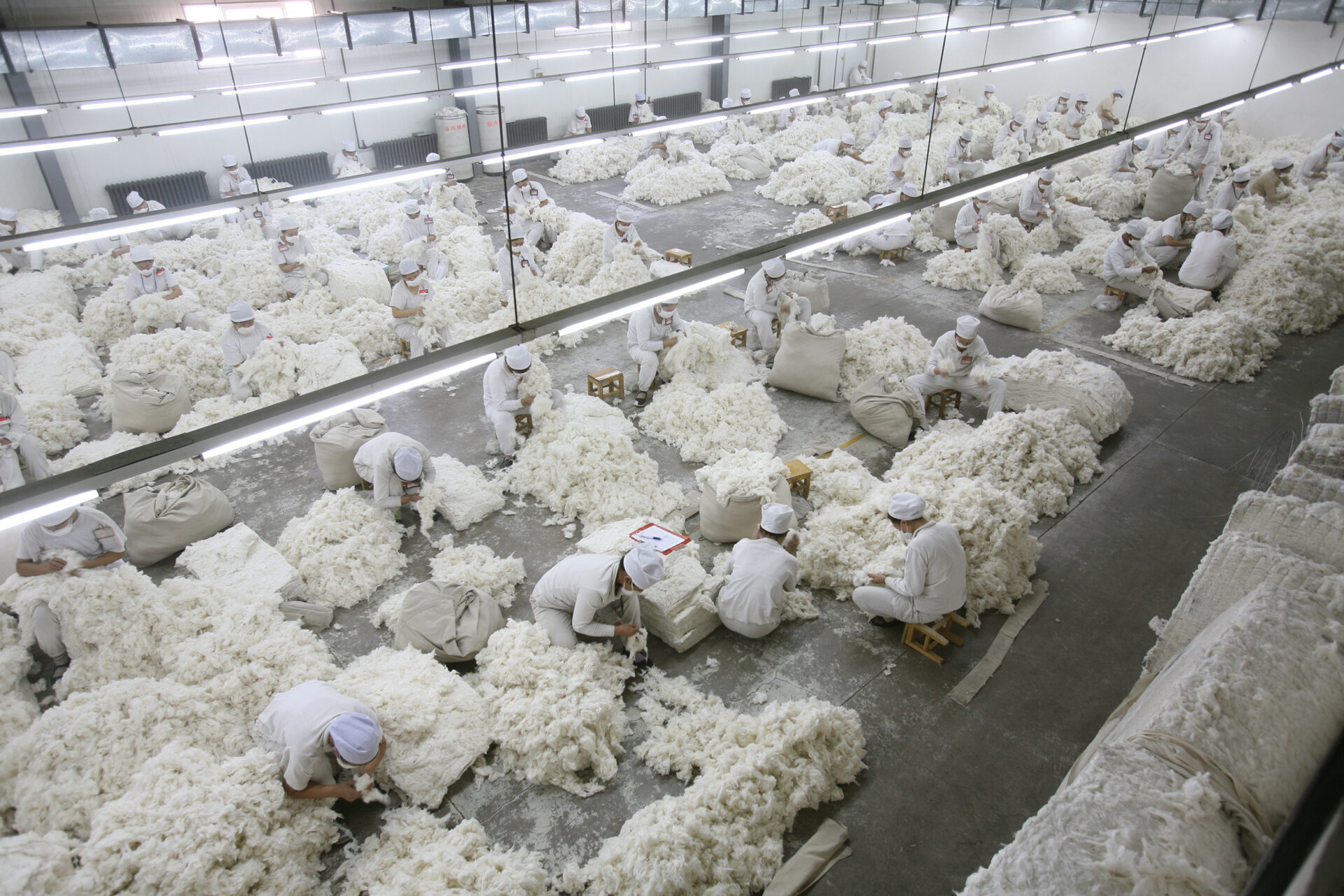
Credit: Coalition to End Forced Labour in the Uyghur Region
Cranston argued that the cost of employing basic due diligence for companies would ultimately have a negligible impact on companies.
Indeed, a February 2020 report on due diligence requirements and the supply chain conducted by the Europe Commission revealed that heightened checks on supply chains would not significantly impact the economic model of international corporations.
Existing measures to attempt to combat the use of unethically sourced materials have been largely unsuccessful. Despite improved and more stringent use of corporate social responsibility (CSR) policies, regulations for the sector remain unbinding, prompting some companies to shirk responsibility and cut corners.
“CSR are voluntary efforts and tend to be a tick box…decades of voluntary corporate social responsibility efforts have failed people and they have not had any of the changes they said they would bring,” Cranston lamented.
Europe risks becoming a 'dumping ground' for slave labour goods
While official estimates from the ILO on the extent of the scale of global slave labour has yet to be published, the Coalition to end Forced Labour in the Uyghur Region believes that the levels of slave labour has only increase since the publication of the last statistics in 2017.
Across the Atlantic, Cranston's coalition has hailed legislation which they say shows that curbing market access to slave labour goods was both feasible and workable.
Implemented by U.S President Joseph Biden on 23 December, 2021 the Uyghur Forced Labour Prevention Act (UFLPA) banned goods, materials, and components made in the Xinjiang Uyghur Autonomous Region (XUAR) of China from entering the U.S, requiring companies to perform due diligence on goods coming from China and turning away slave labour goods from American ports.
While the stringent legislation has been praised by campaigners as an important first step in standing up to facilitation of slave labour in China, the move poses a problem for the European Union, which could turn into a “dumping ground” for slave labour goods, due to the single market’s lack of legislation on Uyghur products.
“The issue is that other countries do not have comparable legislation and as long as that’s the case, other countries may become dumping grounds for Uyghur or forced labour goods…Any company could bifurcate their supply chain so they have on so-called ‘clean’ supply chain for the U.S and one ‘not-clean’ supply chain for elsewhere,” Cranston explained.
Calls for the EU to get tough on products from slavery
With the practical application of anti-slave labour good policies in the U.S, the coalition is calling on the European Union to implement new tough policies to enact overarching bans on products made using forced labour.
On the EU agenda this month, the European Commission is set to publish its proposal for a “forced labour instrument” to effectively ban products “produced, extracted or harvested with forced labour.” The instrument would concern both goods produced inside and outside the EU.
The coalition is concerned that the proposed legislation will not go far enough, as no impact assessment on the proposed measure had been carried out. The final proposal is anticipated for 13 September, one day before this year’s State of the Union address.
“We are calling for new laws that actually require companies to take meaningful steps to prevent modern slavery, other human rights abuses and environmental harm… We need to see a toll or an instrument that can be used to produce a regional ban, all products made with cotton or partly made from cotton from the region,” the member of the coalition said.
Cranston is unsure if these comprehensive measures will ultimately be included, as the Directorate General for Trade may want to avoid damaging political and trade relations with China.
Also on the EU agenda are renewed talks on a directive on corporate sustainability due diligence, a major proposal which would force individual companies to police their global supply chains for environmental and human rights abuses.
The coalition wants new EU legislation to force companies to go beyond CSR, working closely with each step of the supply chain to stamp out materials made from slave labour.
“It can’t be an excuse that ‘we don’t know where our cotton comes from.’ Companies need to change their supply chain so they know where their cotton comes from so they can guarantee their products are not made with crimes against humanity against the Uyghur people,” Cranston affirmed.
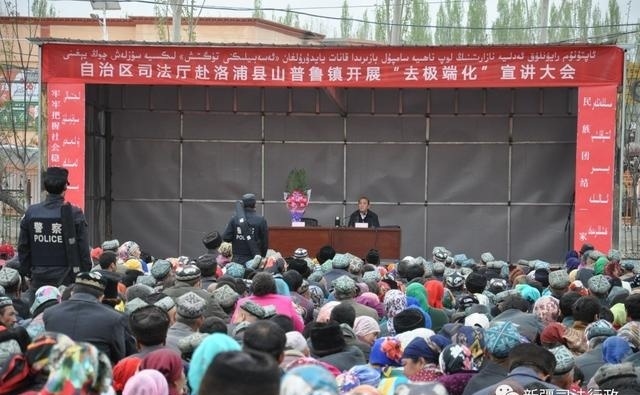
Credit: Xinjiang Judicial Administration
Due to the vast web of international companies, suppliers, and distributors used in the creation and export of goods from China, new EU legislation on CSR would make it necessary for companies to analyse their supply chains at every step of the way, or even simplify and shorten it.
“The burden of proof needs to be placed on the importer…the company needs to be able to say our supply chain constitutes these products from these suppliers. Then that can be cross-checked against red flag lists…that’s what the U.S law has done,” Cranston said.
In the absence of comprehensive European legislation, the coalition is calling on companies to disengage from certain regions of China, especially the XUAR, where individual companies are not able to control the origin of materials.
Holding companies to account
As technology develops, it may soon become harder for companies to plausibly deny that their products include cotton processed with forced labour.
An investigation conducted by German researchers in May, which utilised isotopic testing, a type of advanced forensic technology, scientifically proved that major clothing brands Adidas and Hugo Boss had sourced cotton from Uyghur Region, contradicting German companies promises to review their supply chains.
Related News
- Modern slavery: 55 victims of human trafficking on Antwerp construction site
- Masks produced by slave labour in China on sale in Belgium
- Belgian Parliament calls for harder stance on China
As part of new UFLPA rules, U.S customs authorities are also turning to isotopic testing to determine whether shipments of goods have been made using cotton from Muslim-minority areas under Chinese oppression.
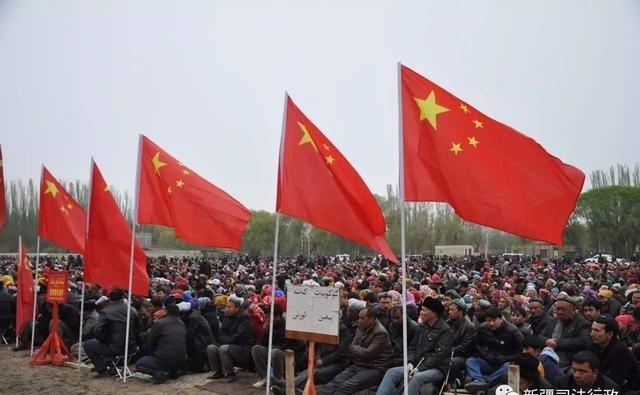
Credit: Xinjiang Judicial Administration
As the pressure on companies mounts to be completely slavery-free, isotopic testing has even made it to private sector, allowing companies to effectively ensure that suppliers have told the truth about the origin of their materials.
But how can Belgian customers avoid using products made from slave labour? It all comes down to advocacy, Cranston says.
Mounting pressure to answer questions on where they source their materials and components forces individual companies to improve how they collect data on sourcing and supply chains.
“Write to your favourite brands, you can get answers from companies…Write to them and ask ‘where does your cotton come from? Are you sourcing from the Uyghur Region? Ask your phone company, how are you making sure there’s no forced labour in my phone?,” she said.
The coalition is urging Belgians, and other Europeans, to sign a petition by “Justice is Everybody’s Business”, an alliance of over 100 NGOs campaigning for stronger EU legislation to hold businesses to account and to protect human rights and sustainable development.

